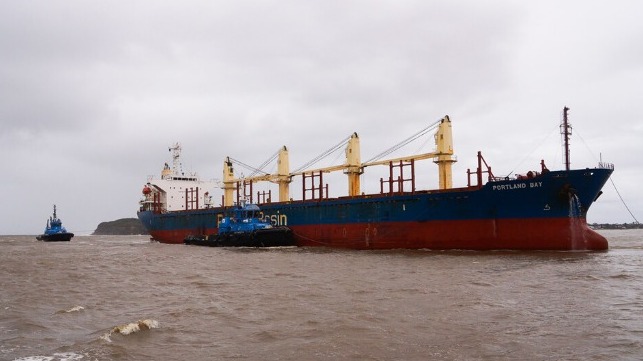Svitzer Threatens Tug Crew Lockout at 17 Australian Ports on Friday

Svitzer Australia, the tugboat operator which is part of A.P. Moller – Maersk, announced plans to lockout all of its employees starting this coming Friday, November 18 as the next step in its long-running dispute with Australia’s three maritime unions. The company's threat to bring operations to a near total standstill at 17 Australian ports is being met with widespread criticism and calls for government action to prevent the potential for serious disruption to Australia’s supply chain.
“We had hoped it would never come to a lockout – but we are at a point where we see no other option but to respond to the damaging industrial action underway by the unions,” said Nicolaj Noes, Managing Director Svitzer Australia, in a prepared statement. The company, which employs more than 500 seafarers which it said complete 40,000 harbor tow jobs annually, contends that the inability to reach a new labor contract, along with a rash of union strikes in recent weeks, prevent it from servicing clients and is undermining the health of the business.
Australian media reports calculate that there have been more than 250 labor actions since October 20 resulting in nearly 2,000 hours of work stoppages either in the form of tugs sitting idle or crews refusing overtime assignments. Svitzer contends the unions have staged over 1,100 job actions since October 2020 saying that it has lost more than 130 jobs and work at three ports between December 2020 and September 2021 due to the union’s job actions.
National Secretary for the Maritime Union of Australia, Paddy Crumlin, responded with a strongly worded statement calling Svitzer’s lockout a “massive escalation,” that he says will “destroy its capacity to deliver towage services and throw Australian supply chains into disarray.”
The union, which had renewed its job actions last month ahead of a pending ruling by Australia’s Fair Work Commission which could terminate the 2016 employment agreement, is accusing Svitzer of being a “bad faith employer” that has avoided signing a new employment agreement. Svitzer in January 2022 began proceeding with the government body to terminate the long-expired agreement which the union argues would result in pay cuts by as much as 47 percent as well as imposing changes in the work rules which would endanger safety. “Svitzer’s corporate sabotage will wreak havoc on Australian supply chains,” said the Maritime Union of Australia.
Svitzer responds by citing more than 75 bargaining sessions, as well as two conciliation sessions with the Fair Work Commission. There was also an independent mediation process that failed. The company argues that it has to remove restrictive work practices which are critical to the competitiveness of the business.

that matters most
Get the latest maritime news delivered to your inbox daily.
Terminal operators find themselves caught in the middle appealing for the government to intervene to prevent the lockout and finally settle the contract dispute. Patrick Terminals which operates in Australia’s container ports says the lockout would disrupt the handling of 10,000 TEU daily. Similarly, DP World notes that Svitzer handles 70 percent of vessels coming to its facilities.
Transport Minister for New South Wales, David Elliott, told reporters that the state government was reviewing the situation and could intervene. He plans to meet with Svitzer on Tuesday. At the same time, the government’s Workplace Relations Minister Tony Burke is using the threat of the strike to push for pending legislation that would overhaul labor laws in Australia, strengthen the unions’ position, and overhaul the Fair Work Commission including making it more difficult to terminate enterprise agreements.
